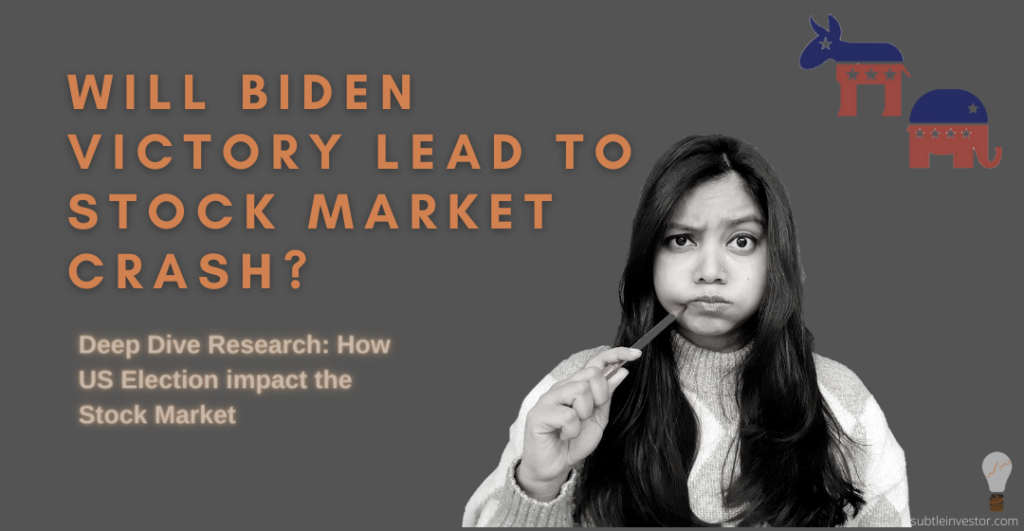How the 2020 US Election will Impact The Stock Market?
93% of investors believe that the 2020 US Election will impact the stock market, a study by Hartford Funds have found. US stock market accounts for nearly 2/3rd of all the stocks in the world, in money terms roughly $36 trillion.
Historical data highlights that the US market is a trend setter for rest of the world. As the 2020 Presidential Election is only one month away, let us find out how it can impact the stock market and how we can better prepare for it.
Watch my video below as I take you through some research backed data and current trends in the investment market.
The video is split into 4 key areas:
1. Historical link between US election and the stock market performance
2. What can we predict for 2020 presidential election and the stock market RIGHT NOW
3. Trump vs Biden victory and its impact on the stock market. Which sector will win the most?
4. How we can best prepare. Can we time the market?
The summary
- Presidential Cycle theory is as it says “a theory” – in reality, it does not always follow. So we can be aware of this, but not use it to time the market. If it does hold true this year and we have a new president Biden, then based on the theory we can expect a relatively weaker stock market over his 1st year.
- Higher market volatility can be expected in the market, as highlighted by the VIX index. Prepare yourself mentally to not panic
- Regardless of who wins, there will be winners and losers across the market. Trump would mean status quo, while Biden would be a moderate and possibly reflect some of the Obama days (at least nothing crazy is hopefully expected).
- While trump’s policies are mainly favourable fiscally, such as lower taxes, Biden’s are more driven by spending money for economic growth. So, either way, both will try to get the economy moving. This is good for the stock market
- A good practical step would be to revisit your overall investment portfolio now and identify what you would like to include in the portfolio and then set them in a “watchlist”, so when the volatility kicks in, you are ready to actually invest.
- None of the analysis highlights that you should sell now and wait to buy later, or that you should base your investment decisions on who the President is. Because at the end of the day, it is all about your time in the market and not timing the market.

